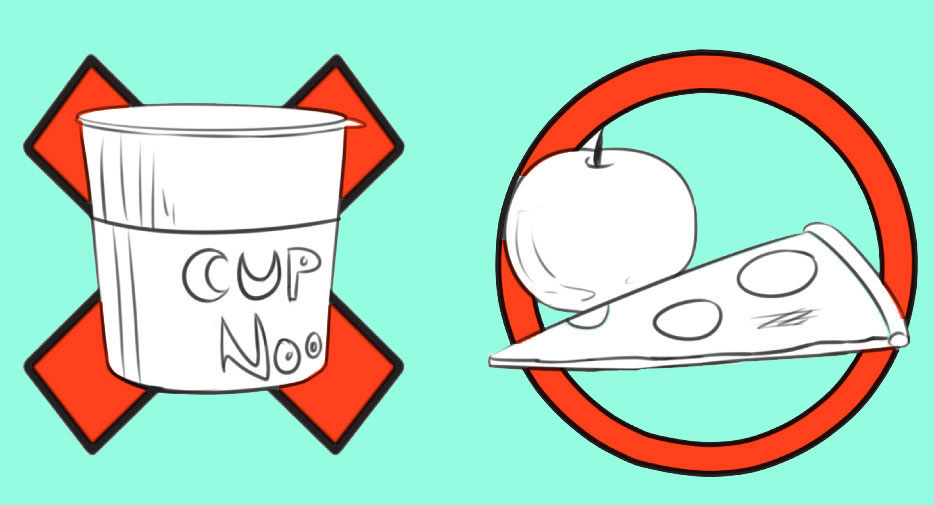
More stringent nutritional regulations for food sold on campus will take effect in July, tightening the requirements for any food sold on campus, including in food fairs.
The new regulations mandate that entrees sold by anyone other than the food service must have less than one half a gram of trans fat, less than 480 milligrams of sodium, and contain less than 350 calories. Additionally, they must have fruit, vegetable, dairy, protein or whole grain as the first ingredient. Or, they must have more than 10 percent daily value of calcium, potassium, Vitamin D or dietary fiber, or contain a quarter cup of fruit or vegetable.
Currently, food sold by student organizations at food fairs must meet the same standards as food sold in the cafeterias. Thus, any food item must have no more than 35 percent of its total calories from fat and no more than 10 percent of its total calories from saturated fat. Also, an item must not have more than 35 percent of its total weight be composed of sugars, including naturally occurring and added sugar, and have no more than 250 calories per individual food item. Entrees must be less than 400 calories and not have more than four grams of fat per 100 calories.
For example, pizza from Little Caesars is allowed under both the current and new regulations. However, Cup of Noodles, Hello Panda cookies, and Tyson Dino Nuggets would not be allowed under both old and new regulations, as more than 35 percent of calories from those products are from fat.
Under the new regulations, if a student group wants to sell food on campus, its members must prove to the administration that the food they are selling meets these regulations. Denis Vorrises, the manager of Student Nutrition for the district, says, “The groups who are selling the food or drinks must provide the nutritional information to the site office or district, showing that it meets the requirements and it must be kept on file.”
Currently, when a club signs up for a food fair, its members do not have to say what they are selling. Additionally, they are told that they cannot sell candy, soft drinks or Capri Sun, or In-N-Out burgers.
However, students are not entirely opposed to the regulations. Sophomore Victoria Hoznek says, “Maybe some stuff that is really detrimental to your health [should not be allowed].”
Additionally, due to the stricter regulations, clubs and students may have fewer options of food items to sell. Vorrises suggested to the administration that it is easier to meet regulations if students buy food from the district nutrition department because it has already been shown to meet regulations.
Many students are against this, as it limits what clubs can sell and what students can buy. Freshman Alexandra Varallo, who was selling food at the fair, says, “I believe that maybe they shouldn’t because it is better to have a more diverse selection.”
The administration is required by the state to make sure that clubs follow these regulations. The consequence for not doing so is a loss in funding for that program. Vorrises says, “I do know the penalty for not following the regulations is taking away the funding from the national school lunch program for those students who are provided assistance for meals from federal and state funding … This applies to funding for any program when regulations are not followed.”
However, senior and ASB secretary Albert Boe points to a significant lack of enforcement of the rules as they stand, saying, “We are pretty relaxed about what we sell. We do say that the administration has the right to restrict what people are selling. We find out what [the clubs] are selling beforehand, so we haven’t had too many problems. Even with the root beer floats, we were able to check that with the administration … The district hasn’t been really on our case.”



